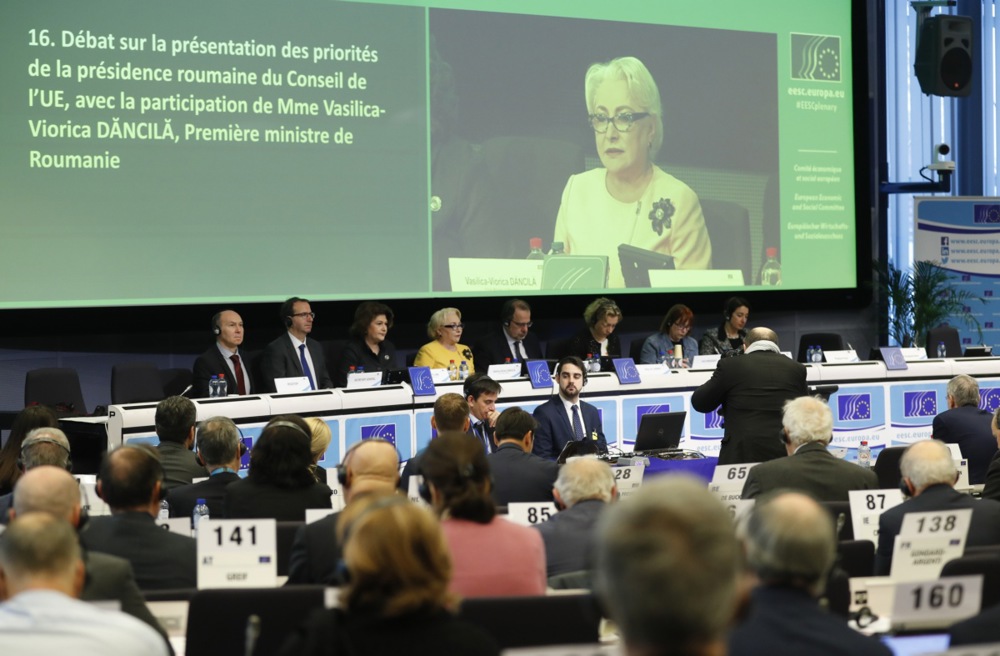MEPs have voted in favour of regulating vehicle-brakes’ environmental emissions as part of a new swathe of “green” transport rules.
As previously reported by Brussels Signal, European Union institutions agreed to impose restrictions on such emissions as part of the new “Euro 7” standard for road vehicles such as cars, vans and lorries.
The new rules passed in the vote on March 13 will also limit the acceptable level of particle emissions from tyres – and electric vehicles.
Fossil-fuel powered buses and lorries will also be subject to stricter exhaust-emission regulations, although current restrictions on cars and vans will remain the same.
This suite of measures was approved with 297 MEPs voting in favour and 190 against.
Following the poll, the legislation’s European Conservative and Reformist (ECR) group rapporteur Alexandr Vondra insisted the deal represented “a balance between environmental goals and the vital interests of manufacturers”.
“We want to ensure the affordability of new, smaller cars with internal-combustion engines for domestic customers and, at the same time, enable the automotive industry to prepare for the expected transformation of the sector,” he said.
“The EU will now also be addressing emissions from brakes and tyres and ensuring higher battery durability.”
Brífink pro novináře po dnešním posledním hlasování o Euro 7. Velké vítězství. 297 pro, 190 proti (zelení, levice, většina socanu). Dostupnost nových, levnějších aut se spalovaky bude v nejbližších letech zachována. K větší revizi zákazu 2035 se vrátíme po volbách v lepším EP. pic.twitter.com/1T9Z6HO03T
— Alexandr Vondra (@AlexandrVondra) March 13, 2024
Speaking outside the parliamentary chamber, Vondra added that he intended to see further protections put in place regarding the EU manufacturing of combustion-engine vehicles after the European Parliament elections in June.
“The availability of new, cheaper cars with internal-combustion engines will be maintained in the coming years,” he pledged.
“We will return to a larger revision of the 2035 ban after the elections, in a better EP.”
The latest measures will now need to be approved by the Council of Ministers before going into force.
A new EU carbon border tax starting its trial period this week will raise the price of an average car by almost €600, Boston Consulting Group (@BCG) has said. https://t.co/pidejBNybq
— Brussels Signal (@brusselssignal) October 2, 2023
Although the new rules passed through the Parliament, many MEPs remain unconvinced of their efficacy.
Ahead of the vote, Identity and Democracy (ID) group MEP Marco Campomenosi criticised what he called the EU’s ever-increasing regulation of the automotive sector.
“The risk of increased costs and further restrictions for motorists is absolutely real,” he said.
“This Parliament continues to impose regulations on the automotive sector and ignores the big issue in the background: the end of the combustion engine at the end of 2034 must absolutely be cancelled,” the Italian politician added. He said he hoped the new Parliament after June’s elections would be able to reverse the decision.
Other representatives attacked the new measures as not going far enough, with Green politician Karima Delli describing Euro 7 as “shameful”.
“Despite DielselGate and the 300,000 deaths/year from air pollution! – the European Parliament adopts a Euro 7 standard gutted by the automobile lobby,” she wrote online.
Delli went on to claim the measures would mean “garbage vehicles” would continue to “poison” Europeans well into 2050.
WATCH: The COP28 deal is fossil fuel ‘phase out’ in all but name.
Read more at https://t.co/6KkqJ2xjyS pic.twitter.com/YWqy14BfUB
— Brussels Signal (@brusselssignal) December 18, 2023





